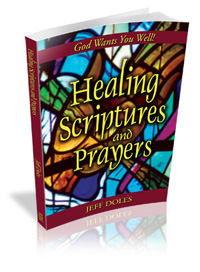Take another look at Acts 4:29-30, the prayer of the first Christians as they cried out to God for boldness:
Grant to Your servants that with all boldness they may speak Your Word, by stretching out Your hand to heal, and that signs and wonders may be done through the name of Your holy servant Jesus. (Acts 4:29-30)There is a very important word that occurs twice in this passage, and it makes all the difference in the matter of boldness and the manifestation of God’s healing signs and wonders. Can you spot it? It is the word “servant.”
Grant to Your servants . . . through the name of Your holy servant Jesus.This is about God through and through. His servants, His Word, His hand, His holy servant Jesus. And if it is about God, then it must be about love. It is the “algebra of love”: God is love, love gives and serves.
Even Jesus, who is fully divine as well as fully human, rejoiced to be the servant of God. He came to obey the Father’s will, and thereby reveal the Father’s heart. He did nothing of Himself, not of His own will, His own thoughts, His own emotions. It was all the Father. Jesus said,
Most assuredly, I say to you, the Son can do nothing of Himself, but what He sees the Father do; for whatever He does, the Son also does in like manner. (John 5:19)Jesus also became a servant toward us, for our sake. The Bible says that He “made Himself of no reputation, taking the form of a servant and coming in the likeness of men. And being found in appearance as a man, He humbled Himself and became obedient to the point of death, even the death of the cross” (Philippians 2:7-8). Jesus Himself said, “For the Son of Man did not come to be served, but to serve, and to give His life a ransom for many” (Mark 10:45).
I can of Myself do nothing. As I hear, I judge; and My judgment is righteous, because I do not seek My own will but the will of the Father who sent Me. (John 5:30)
I do nothing of Myself; but as My Father taught Me, I speak these things. And He who sent Me is with Me. The Father has not left Me alone, for I always do those things that please Him. (John 8:28-29)
When those first Christians cried out to God for boldness, signs and wonders, they identified themselves with the servant heart of Jesus. They came asking as servants, just as Jesus their Master was a servant. And so they received.
If it is boldness you need, then tie into the love of God and become His servant for the sake of others. If you long for the healing miracles of God to be revealed in and around you, then go after the heart of the Father and His hand will follow.
Root out every thought of self-glory or of seeking a better position for yourself. The very best position is the servant position — it is the one Jesus chose. Let go of pride and bow down low, toward God and others. Then you will experience that great boldness which can only come from Love. Stretch our your hand to serve, and God will stretch our His hand to heal.


